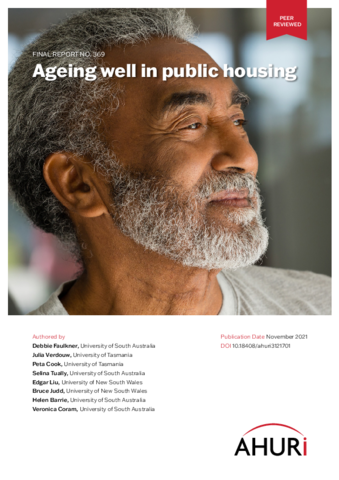This research examines the policy and practice issues raised by increasing demand for public housing among older Australians, and how public housing authorities (PHAs) can support older tenants to age well.
Although most Australian states and territories have strategies in place to support ageing well among their older citizens, the explicit place of public housing policy and practice for older people within ageing well frameworks is limited. People aged 55 years and over now comprise 35 per cent of public housing tenants nationally. In the coming years it is expected the demand on the public housing system from lower income older households will increase significantly, with demand for housing far exceeding supply; an ageing population; inappropriate and inefficient stock; and increasing complexity in the needs of current and prospective tenants.
The various housing strategies of the states and territories recognise that governments, through their PHAs, have a responsibility to cater to the needs of their older residents. To age well across the life course, it needs to be remembered that tenants or prospective tenants have rights, desires, needs and, for the most part, reasonable community-aligned expectations for their housing.
It is both important and necessary to have frontline workers in the system (housing/property officers and tenancy practitioners) who are resourced and allowed to provide one-on-one support to address older people’s needs and issues.


